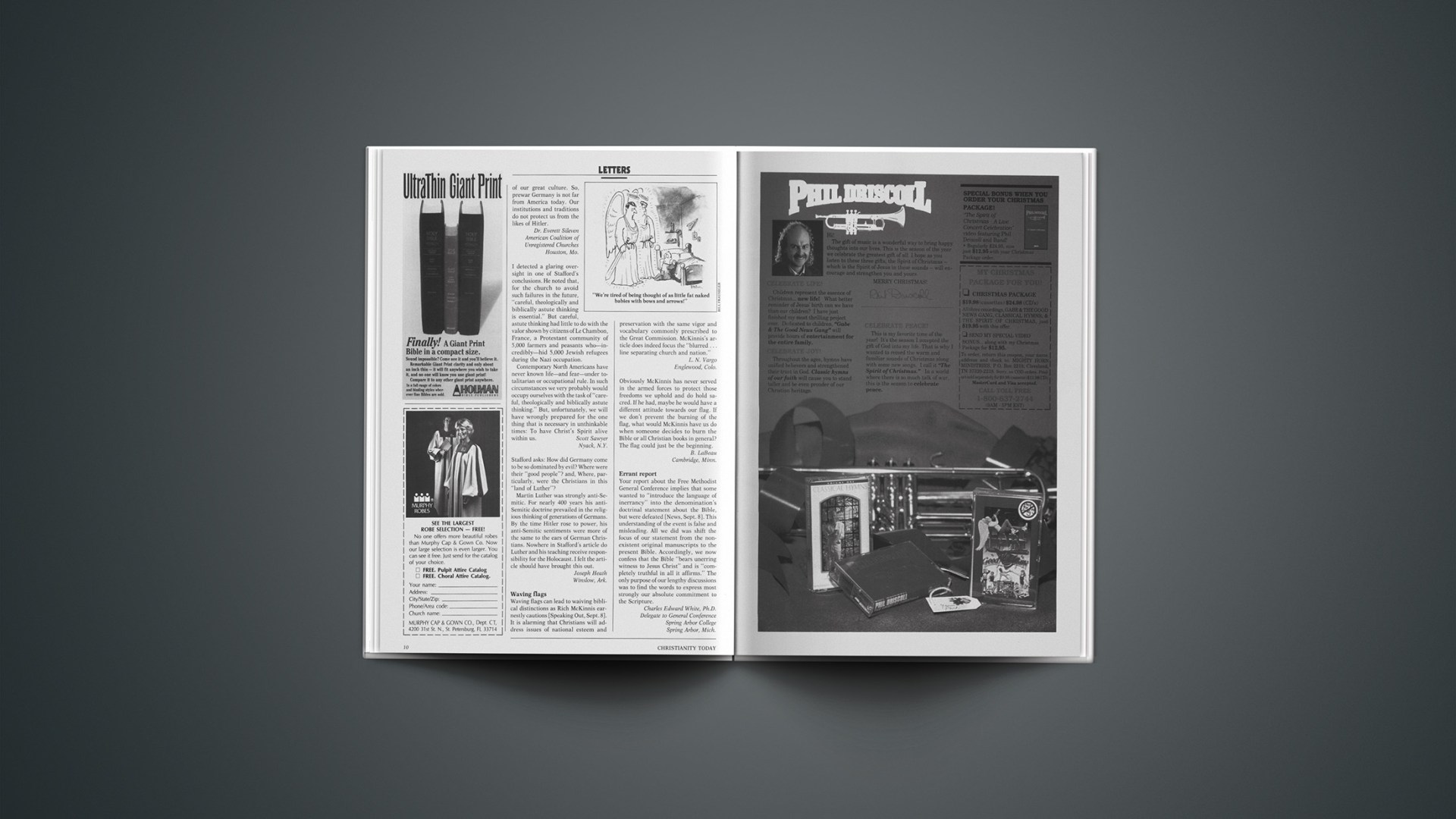For the past couple of years two of my sons, David and Paul, have participated in a reading program sponsored by our public library and local elementary schools. It is called “Battle of the Books.” Each school selects a team of students who read 60-plus recommended books and then compete with other teams in answering questions about them. It has been a good program.
Similarly, I caught a love for reading from my own parents’ eagerness as they left us kids one night a month to go to the public library for a Great Books discussion.
Watching my sons learn to love reading has spurred me to think of how important reading is for Christians. We are people of the Book, people who depend on a written revelation called the Bible. Knowing how to read has been important to us ever since the Reformation gave us the text in our own language and movable type made it economically feasible to own a copy.
Several things in our culture are conspiring to threaten this reliance on the Book, however, not the least of which is a pure and simple reluctance to read. This reluctance translates into a tragic ignorance. Jo Lewis and Gordon Palmer recently wrote a provocative book, What Every Christian Should Know, that details how little most of us know about our Christian heritage, particularly the content of the Bible. In an age when Bibles are more plentiful than ever, fewer Christians take the time for regular serious study to master its content.
The threat, however, goes further than simple reluctance to read. More and more people cannot read—literal illiteracy is growing at an alarming rate. Approximately one out of six U.S. adults (27 million) cannot read, and their ranks increase by 2 million each year.
Experts agree that one of the causes of growing illiteracy, whether functional or literal, is the video revolution. A recent article in the World Monitor speculated that today’s reader of paperback novels may, in the year 2000, “insert a credit-card-size piece of plastic into a high-resolution, flat screen holder the size of a mass-market paperback” and that the viewer of this minicomputer may “dispense with text altogether, electing instead to view pictures while listening as the words are read aloud.”
Although I am not against the computer revolution (the computerization of libraries and the vast amounts of information available in computer networks is a great boon), I do think there is a danger when pictures and voices replace written words as the primary means of receiving information. The danger is especially acute for those of us who put so much stock in a rational understanding of a revealed Bible.
The first danger is that information communicated through videos is primarily feeling and experience oriented. The bulk of the information communicated enters through the heart, not the mind. This is why movies adapted from great works of literature are never quite as good as the books they’re taken from. A richness of content is lost in adapting to the demands of visual and auditory presentation.
Second, videos are difficult to discuss. About a book, we ask, “What did you think about it?” But about a movie or video, we usually ask, “How did you like it?” Common responses convey our feelings about the work, or we recount the scenes we found most entertaining. But the ideas of the movie rarely surface in such discussions.
We need to learn through our hearts, but not at the expense of our heads. We can learn much about Christianity by sharing experiences with other Christians and watching movies about biblical events and Christian themes. But there is much about Christianity we cannot learn in that way—the great doctrines of the faith, for example.
I want my sons to take advantage of the computer and video revolution. It is an advantage I never had. But the current statistics on growing illiteracy disturb me, and I view them as a threat to our responsibility to pass along the Christian heritage. My part in meeting this threat is to encourage my sons to learn and love to read—and encourage you to do the same with your children.
TERRY C. MUCK










